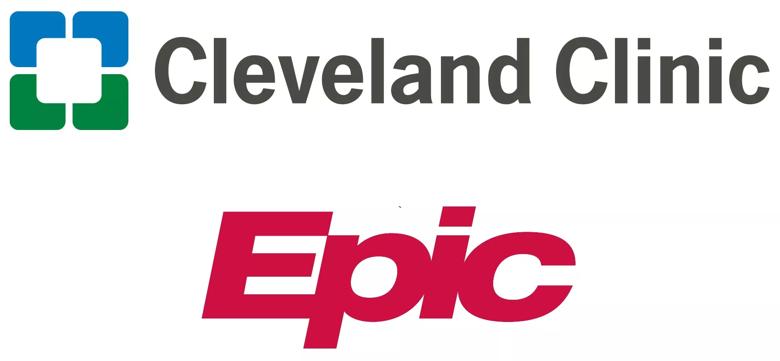Healthcare organizations can present the clinically validated model to patients in MyChart to assess their risk of having COVID-19

CLEVELAND, OH, and VERONA, WI – A COVID-19 risk prediction model designed by Cleveland Clinic researchers is now available to health systems around the world through Epic. Developed and tested using clinical data from more than 11,000 Cleveland Clinic patients, the model uses information from patients’ comprehensive health records combined with patient-entered information in Epic’s patient-facing app, MyChart, to show an individual’s likelihood of testing positive for COVID-19. Predicting positive COVID-19 tests could help direct limited healthcare resources, encourage those who are likely to have the virus to get tested, and tailor decision-making about care.

Image content: This image is available to view online.
View image online (https://assets.clevelandclinic.org/transform/5a6419e1-93ba-49df-9082-7260a2fd0d9a/CC-Epic-crop_jpg)
“We have developed the first validated prediction model that can forecast an individual’s risk for testing positive with COVID-19 and then simplified this tool while retaining exceptional accuracy for easy adoption,” said Lara Jehi, M.D., Chief Research Information Officer at Cleveland Clinic. “We are excited to make this tool available to the 250 million patients around the world who have a record in Epic. The ability to accurately predict which patients are likely to test positive will be paramount in effectively managing a patient’s care as well as allocating our resources.”
Patients complete a short self-assessment in MyChart, documenting information like symptoms they are experiencing and potential exposure to COVID-19. The model uses that information, as well as clinical and demographic data already in their electronic chart, to calculate their score. Patients with high risk for having COVID-19 are advised to receive a test, and their care team members can be automatically notified of a high-risk score.
Other healthcare providers around the country also have developed risk prediction models, which they can integrate with Epic. For organizations that want to use an existing model rather than developing their own, they can quickly turn on the model designed, developed, and tested–and now being shared–by Cleveland Clinic researchers.
Cleveland Clinic’s model was developed and validated using retrospective patient data from patients tested for COVID-19 at Cleveland Clinic locations in Northeast Ohio and Florida. Data scientists used statistical algorithms to transform data from patients’ electronic medical records into the first-of-its-kind risk-prediction model. All data collected was housed in a secure database.
“With MyChart, patients can now determine the likelihood that they have COVID-19 using a trustworthy, clinically validated calculator,” said Trevor Berceau, Director of MyChart R&D at Epic. “These risk scores are shared automatically with healthcare providers, who can then follow up with patients as needed. Cleveland Clinic’s model helps their patients, and they are sharing it with health systems throughout the global Epic community.”
Cleveland Clinic: Alicia Reale, 216-408-7444, Realeca@ccf.org
Epic: Ashley Gibson, 608-271-9000, agibson@epic.com
About Cleveland Clinic
Cleveland Clinic is a nonprofit multispecialty academic medical center that integrates clinical and hospital care with research and education. Located in Cleveland, Ohio, it was founded in 1921 by four renowned physicians with a vision of providing outstanding patient care based upon the principles of cooperation, compassion and innovation. Cleveland Clinic has pioneered many medical breakthroughs, including coronary artery bypass surgery and the first face transplant in the United States. U.S. News & World Report consistently names Cleveland Clinic as one of the nation’s best hospitals in its annual “America’s Best Hospitals” survey. Among Cleveland Clinic’s 67,554 employees worldwide are more than 4,520 salaried physicians and researchers, and 17,000 registered nurses and advanced practice providers, representing 140 medical specialties and subspecialties. Cleveland Clinic is a 6,026-bed health system that includes a 165-acre main campus near downtown Cleveland, 18 hospitals, more than 220 outpatient facilities, and locations in southeast Florida; Las Vegas, Nevada; Toronto, Canada; Abu Dhabi, UAE; and London, England. In 2019, there were 9.8 million total outpatient visits, 309,000 hospital admissions and observations, and 255,000 surgical cases throughout Cleveland Clinic’s health system. Patients came for treatment from every state and 185 countries. Visit us at clevelandclinic.org. Follow us at twitter.com/CCforMedia and twitter.com/ClevelandClinic. News and resources available at newsroom.clevelandclinic.org.
About Epic
Visit www.epic.com/about.